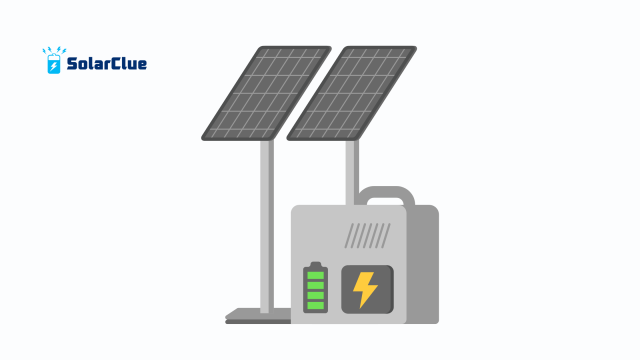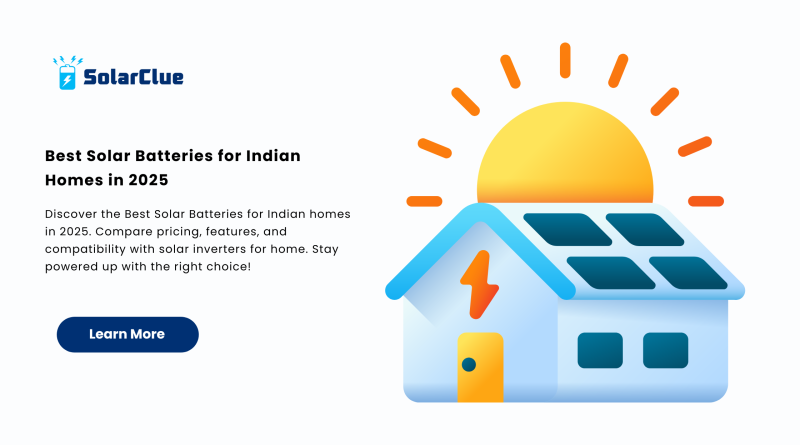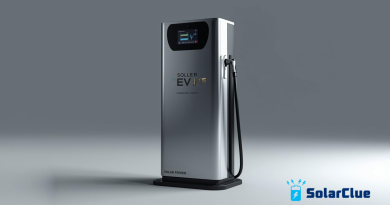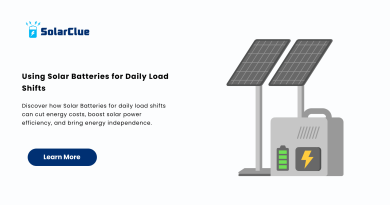Best Solar Batteries for Indian Homes in 2025
With India rapidly transitioning towards clean energy, more households are adopting solar power. But one common challenge remains—unreliable grid supply. That’s where the need for solar batteries for home comes in. These energy storage systems help store the excess electricity generated during the day and use it when the sun isn’t shining or during power cuts. In this blog, we will break down the Best Solar Batteries suitable for Indian weather, electricity patterns, and affordability. Whether you’re in a metro or a rural town, this guide will help you make an informed decision.
Table of Contents
- 1 Why Solar Batteries Are Crucial in India
- 2 What Makes a Solar Battery Ideal for Indian Conditions?
- 3 Types of Solar Batteries Available in India
- 4 Top 5 Best Solar Batteries for Indian Homes
- 5 Comparing Solar Batteries Price and Features
- 6 How to Choose the Right Solar Battery for Your Home
- 7 Best Solar Inverters for Home Use
- 8 Solar Batteries Price Trends in India
- 9 Maintenance Tips for Long Battery Life
- 10 Government Subsidies for Solar Systems
- 11 Off-Grid vs. Hybrid Systems – What Should You Choose?
- 12 Environmental Benefits of Using Solar Batteries
- 13 Common Myths About Solar Batteries
- 14 Conclusion
- 15 FAQs
Why Solar Batteries Are Crucial in India
India faces a unique mix of challenges: frequent power cuts in rural areas, voltage fluctuations, and extremely high temperatures in most states. Therefore, having a reliable solar battery setup isn’t just about going green—it’s about energy independence. A good battery lets you run essential appliances like fans, lights, and even refrigerators during outages. Plus, they help you reduce your reliance on the grid, saving on electricity bills.
What Makes a Solar Battery Ideal for Indian Conditions?
-
High temperature resistance: Indian summers can be brutal. A suitable battery should perform well in temperatures up to 50°C.
-
Deep discharge tolerance: A battery that can discharge up to 80-90% without damage is ideal for households with high usage.
-
Cycle life: Longer life equals more value. Aim for batteries offering 3000–5000 charge cycles.
-
Low maintenance: Especially in remote areas, batteries that require less monitoring or water refilling are preferred.
-
Affordability: For many families, balancing price with performance is key.
Types of Solar Batteries Available in India

There are mainly two types of batteries commonly used in India:
-
Lead-Acid Batteries: Budget-friendly, good performance, but require regular maintenance.
-
Lithium-Ion Batteries: More expensive but compact, highly efficient, and require little to no maintenance.
Top 5 Best Solar Batteries for Indian Homes
1. Luminous InverGel Battery – 150 Ah
-
Type: Gel-based Lead Acid
-
Best for: Budget-conscious buyers
-
Price: ₹13,000–₹16,000
-
Features: Maintenance-free, works well in hot environments, 5-year warranty
2. Exide Solar Tubular Battery – 200 Ah
-
Type: Tubular Lead Acid
-
Best for: Areas with long power cuts
-
Price: ₹17,000–₹20,000
-
Features: Robust design, trusted brand, long life, high backup duration
3. Livguard Lithium Battery – 3–5kWh
-
Type: Lithium-Ion
-
Best for: Urban homes and smart homes
-
Price: ₹60,000–₹90,000
-
Features: Compact, long lifespan, high efficiency, minimal maintenance
4. Amaron Solar Battery – 165 Ah
-
Type: Tubular
-
Best for: Mid-range energy needs
-
Price: ₹14,000–₹17,000
-
Features: Low self-discharge rate, corrosion-resistant, reliable performance
5. Loom Solar CAML Battery – 100 Ah
-
Type: Lithium-Ion
-
Best for: Small homes and off-grid applications
-
Price: ₹39,000–₹45,000
-
Features: Lightweight, compact size, quick charging, smart battery management system
Comparing Solar Batteries Price and Features
| Brand | Type | Capacity | Price (₹) | Best For |
|---|---|---|---|---|
| Luminous | Gel Lead-Acid | 150 Ah | 13,000–16,000 | Budget setups |
| Exide | Tubular | 200 Ah | 17,000–20,000 | High outage areas |
| Livguard | Lithium-Ion | 3–5 kWh | 60,000–90,000 | Urban smart homes |
| Amaron | Tubular | 165 Ah | 14,000–17,000 | General household use |
| Loom Solar | Lithium-Ion | 100 Ah | 39,000–45,000 | Compact/off-grid setups |
How to Choose the Right Solar Battery for Your Home
Choosing the right battery involves assessing your daily energy consumption. For a 2–3 BHK home, a 5kWh lithium battery or a 200Ah tubular battery would typically be sufficient. Also, ensure the battery is compatible with your inverter. Pairing it with the Best Solar Inverters for home ensures seamless performance.
Best Solar Inverters for Home Use
To get the most from your solar battery, it must work well with an efficient inverter. Here are some reliable options:
-
Luminous Zelio+ 1100: Great for medium-sized homes, supports lead-acid and lithium batteries
-
Microtek UPS SEBz: Affordable and efficient
-
Growatt SPF 3000TL: A hybrid inverter ideal for solar plus battery systems
-
Su-Kam Falcon+ Pure Sine Wave: Safe for sensitive electronics
Solar Batteries Price Trends in India
Thanks to government initiatives and local manufacturing, solar batteries price is becoming more affordable. Lithium-ion batteries have seen a price drop of nearly 15% in the last two years, and the trend is expected to continue. Tubular batteries remain consistent in price but offer great value for their longevity.
Maintenance Tips for Long Battery Life
-
Install in a cool, dry, and ventilated location
-
Keep terminals clean and rust-free
-
Do not let the battery fully discharge frequently
-
Use with a compatible inverter to avoid overload
Government Subsidies for Solar Systems
The Indian government offers subsidies under programs like PM-KUSUM and Rooftop Solar Programme Phase II. These schemes can cover up to 40% of your solar system cost, including solar batteries for home setups, making them much more accessible for households across the country.
Off-Grid vs. Hybrid Systems – What Should You Choose?
-
Off-grid: Perfect for remote locations or areas with no grid access. Requires battery storage for night use.
-
Hybrid: Ideal for cities. Combines solar, grid, and battery for uninterrupted supply and optimal savings.
Environmental Benefits of Using Solar Batteries
Using solar batteries helps reduce your carbon footprint and reliance on fossil fuels. Modern lithium-ion batteries are recyclable and highly efficient, making them a great step toward a sustainable future.
Common Myths About Solar Batteries
-
Myth: Solar batteries are only for large homes.
Truth: Even 1 BHK homes can benefit from compact battery solutions. -
Myth: Lithium batteries are not safe.
Truth: Most come with advanced protection systems and are completely safe for residential use.
Conclusion
Choosing the Best Solar Batteries for Indian conditions means securing your home against power cuts, cutting electricity costs, and investing in a greener future. Whether you’re going off-grid, building a hybrid system, or just looking for a solid backup, there’s a perfect battery out there for you. With dropping prices and increased government support, now is the right time to switch.
Want to find the right solar battery tailored to your needs? We recommend exploring the most trusted options on solarclue.com and staying informed with the latest tips and trends at blog.solarclue.com. Go solar, go smart—your future deserves it!
FAQs
1. What is the best solar battery type for Indian weather?
Lithium-ion batteries are the best choice due to their heat resistance, long life, and low maintenance.
2. How much does a good solar battery cost in India?
Prices range from ₹13,000 to ₹90,000 depending on type, brand, and capacity.
3. Can I install a solar battery with an existing inverter?
Yes, but ensure your inverter supports the battery type (lead-acid or lithium).
4. Are government subsidies available for home solar battery setups?
Yes, under schemes like PM-KUSUM and Rooftop Solar Programme, up to 40% subsidy is available.
5. Do I need a solar battery if I already have a solar panel?
If you face frequent outages or want to go off-grid, a solar battery adds immense value to your setup.




